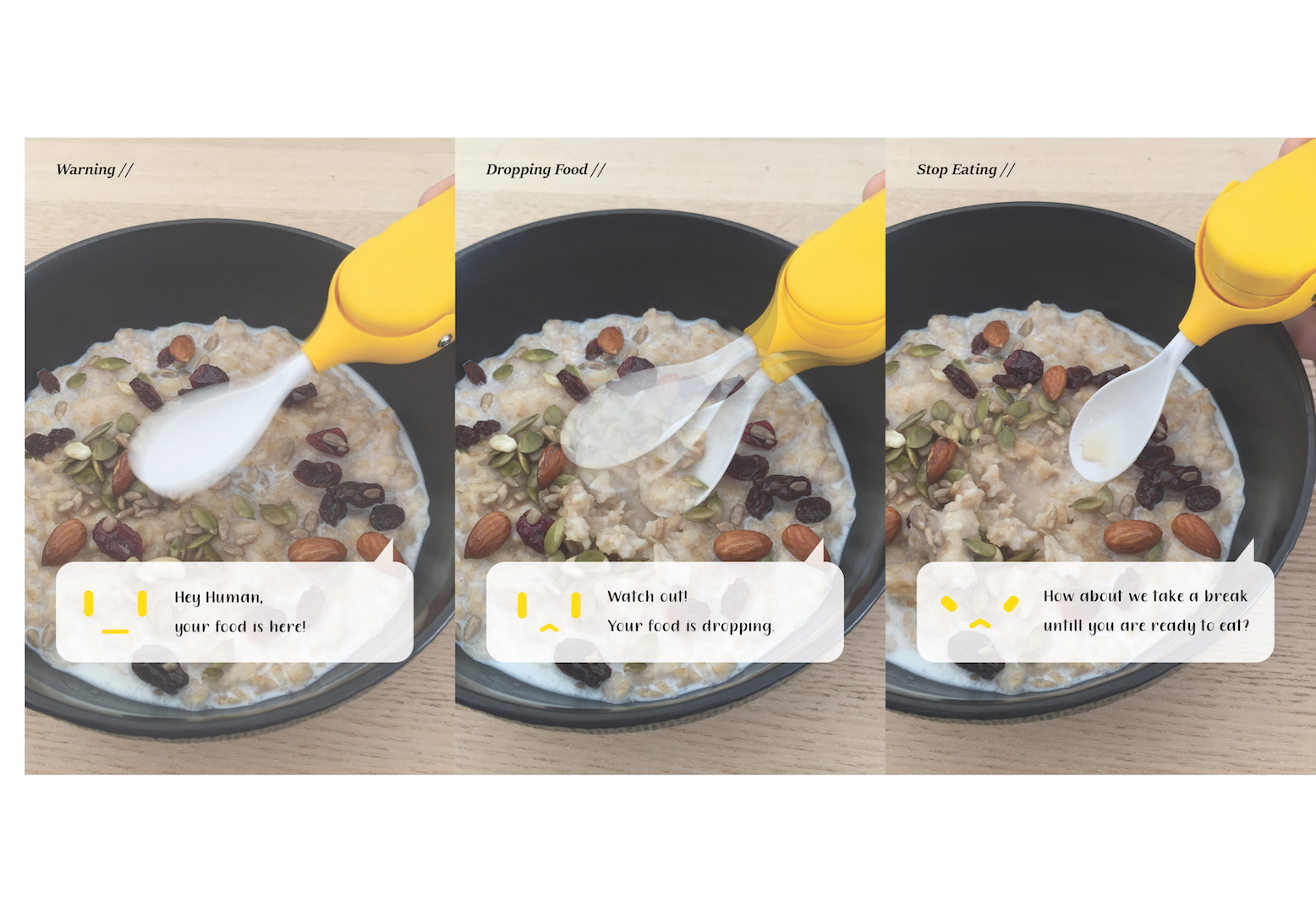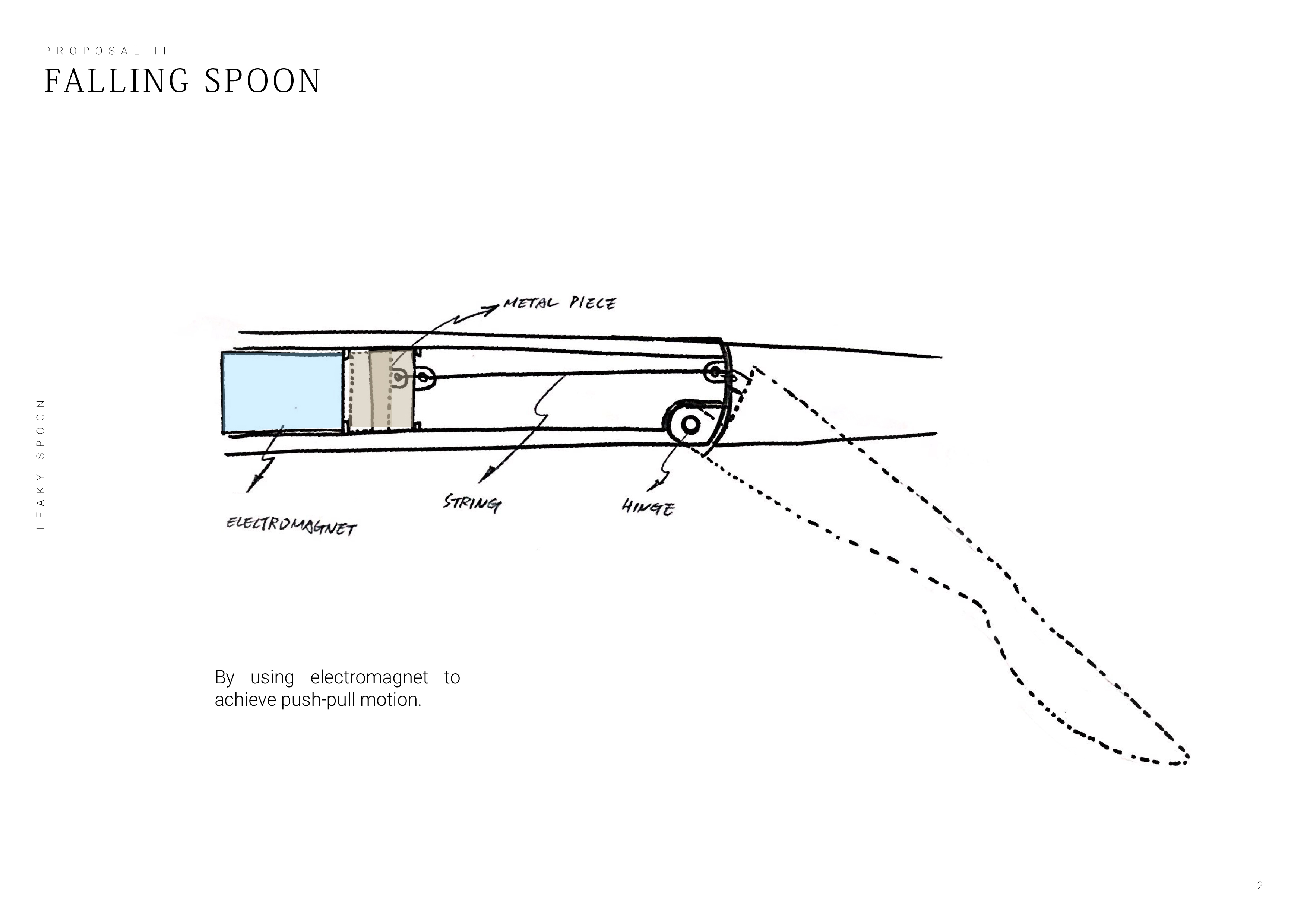
SWAN
Mindful Eating Screentime Companion Human-Food InteractionSWAN is the world’s first augmented spoon that encourages people to pay more attention to their food and eat mindfully. SWAN keeps track of an individual’s gaze during mealtime and makes three moves based on how much attention is given to the food. The first move is “Redirect” that draws diners’ attention towards food through rapid movements; the second is “Drop”, a motion that drops food from the spoon and the third is “Refuse” where SWAN leans back and refuses to pick up the food. Through three moves, SWAN offers playful ways in which mindfulness can be guided during mealtime.
Made with by Rohit Ashok Khot, Jung-Ying (Lois) Yi & Deepti Aggarwal
Ideation
Duration: 2 monthsDesign
Duration: 3 monthsField Study
Duration: 6 monthsVideo recording of ACM CHI PLAY 2018 presentation.
Provocative.
This project addresses increasing tensions between the lucrative appeal of screen-based media and ideologies of mindfulness. Today, few can enjoy our meal without having our eyes glued to some form of screen-based entertainment. This behavior is detrimental to wellbeing as it interrupts the physiological signals of satiety and hunger, leading to problems such as overeating, obesity and heart disease. SWAN is a provocative solution that acknowledges the pervasive presence of screen-based media rather than denying it. It guides people’s attention and redirects focus on the act of eating, prompting mindfulness in their eating behavior.
Grounded.
The design of SWAN is grounded in years of research in food psychology and sociology. Research highlights that food-related decisions are made instantaneously and are affected by the social and emotional context and surroundings. By playfully changing the way in which people understand their eating habits and its consequence, SWAN facilitates change in those momentary decisions. Such continuous and real-time exposure to triggering cues of eating behaviors can help to gradually eliminate unhealthy eating activities.
Contextual.
SWAN is playfully provocative and contextually appropriate.
Instead of denying the presence of media during eating, it
reconfigures and repurposes their use towards instilling
mindfulness in eating. The software interface of SWAN is
built using state of the art machine learning algorithms
while the hardware part uses food-grade material in its
composition.
SWAN is comfortable to grip, and its
structure is as similar as possible to standard spoons with
regard to its physical dimensions (weight, handle length and
width, handle texture) so as to ensure ecological and social
validity. SWAN is easy to clean and works with different
size spoons and can also be reconfigured as a fork. The
spoon does not have any loud vibrating or auditory component
that interferes with the natural course of the meal.
Although it makes movements, these “nudges” are subtle and
do not appear as patronizing. SWAN is wireless and
battery-operated. All electronics components are covered,
preventing any direct contact between the electronic parts
and food.

The authors identify a relevant and under-considered social phenomenon - the fact that so many of us eat while staring at a screen. The authors take the approach of addressing this inattention to food through a ludic intervention, aimed not at addressing a specific dietary concern or trying to manufacture habit change, but rather to explore the possibilities of this kind of intervention. I applaud them for achieving a balance of relevance and lightness of touch in this regard.
Annoymous Reviewer
ACM TEI 2020




